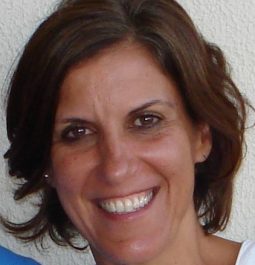Presentation
By understanding the new demands of today's world and the need to implement sustainable development, this course fosters knowledge in an interdisciplinary area that promotes dialogue between various disciplinary backgrounds and professional paths. It provides students with the opportunity to deepen their knowledge and understanding of the concepts, sources and means of collecting and structuring information, and gives them tools for the transdisciplinary analysis of Human Ecology, particularly in territorial, environmental, socio-economic and socio-demographic dimensions.
This scientific training will qualify professionals to work in contexts requiring reflection and intervention (such as education, health, urban planning, social action, among others), at local or national scale, for a more sustained support to decision-making.
It also contributes to the development of a new awareness of citizenship, making room for integration with various branches of scientific and technological knowledge necessary in societies undergoing constant socio-ecological transformation.
Objectives
Specific goals:
- To acquire knowledge and understanding of the concepts, sources and means of collecting and structuring information and of the tools for transdisciplinary analysis of Human Ecology, particularly in territorial, environmental, socio-economic and socio-demographic dimensions.
- To learn how to apply the concepts, sources and means of collecting and structuring information and tools of analysis to the diagnosis, formulation and resolution of problems addressing the relationship between various dimensions of society and human action and their ecosystems, in the context of basic or applied research, project development intervention, or professional insertion;
- To acquire the necessary skills to issue opinions and critical judgments, participate in the formulation and monitoring of programs and policies, and intervene at the civic level, including reflections on the implications and ethical and social responsibilities, addressing problems relevant to the area of Human Ecology;
- To acquire scientific, basic and/or applied research skills in Human Ecology, necessary for continued studies at PhD level.
Curricular structure
Duration: 2 years / 4 semesters Total Credits: 120 ECTS (60 in curricular units + 60 in the non-taught component)
Modalities of non-taught component: Dissertation, Project Work or Practical Work Experience with Report
Students complete 50 credits in all the taught units offered. Students also complete 10 credits in a free-choice regime (in post-graduate level curricular units of NOVA FCSH, of NOVA or of other national or foreign higher education institutions, by means of a protocol). In the 3rd semester, students must attend a seminar to accompany the non-taught component (5 ECTS).
The Master’s degree corresponds to Level 7 of the NQF and EQF - National Qualifications Framework/European Qualifications Framework.
Coordination
Faculty staff
- Ana Paula Gil
- Cláudia Urbano
- Iva Miranda Pires
- João Carlos Lutas Craveiro Sousa
- Luís Baptista
- Maria José Roxo
- Rui Santos
- Sónia Nobre
The Masters also benefits from lectures and classes given by visiting professors from the PhD in Human Ecology at NOVA FCSH:
- Luc Hens - VITO NV - Vision on technology - Mol - Belgium;
- Karl Brukmeir - National Research University - Higher School of Economics, Faculty of Sociology - Moscow - Russian Federation;
- Zbynek Ulcak - Department of Environmental Studies Coordinator - Masaryk Uviversity, Brno, Czech Republic;
- Miguel Ángel de Pablo Hernandéz - Departamento de Estadística, Facultad de Ciencias Sociales, Universidad de Salamanca, Spain.

